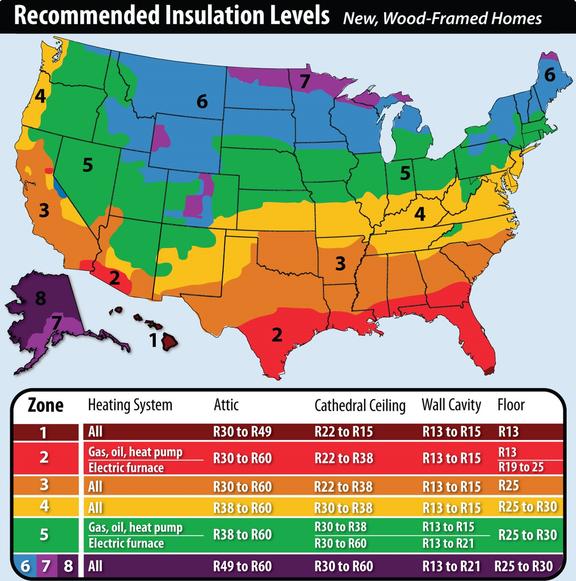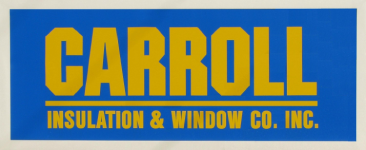Call us for a FREE Estimate. Dial NOW (318) 221-5494
Mon - Fri: 8am to 5pm. Sat & Sun CLOSED
Call us for a FREE Estimate. Dial NOW (318) 221-5494
Mon - Fri: 8am to 5pm. Sat & Sun CLOSED
Insulation helps blocking the flow of cold and heat. It is a form of energy that searches for a cooler area in your home and it flows outward in winter and inward in summer. Insulation slows this heat flow, so your heating and cooling system requires less operation to maintain your desired temperature, and this helps with money costs. Home insulation is the most cost-effective way of conserving energy, saving money with heating and cooling bills, which makes your home more comfortable.
Insulation saves money, increases home comfort, and protects the environment by reducing energy use. According to the U.S. Department of Energy (DOE), the typical U.S. family spends close to $1,500 each year on energy bills. DOE statistics show that, typically, 44% of a homeowner’s utility bill goes for heating and cooling costs. DOE states that homeowners may be able to reduce their energy bills from 10% to 50% by taking certain steps. One of the major steps is increasing the amount of thermal insulation in their existing homes or purchasing additional insulation when buying new homes.
Unless your home was constructed with special attention to energy efficiency, adding insulation will probably reduce your utility bills. The amount of energy you conserve will depend on several factors: your local climate; the size, shape, and construction of your house; the living habits of your family; the type and efficiency of the heating and cooling systems; and the fuel you use. Energy conserved is money saved, and the annual savings increase when utility rates go up. Insulation upgrades also add to the value of your home.
R-value measures insulation’s resistance to heat flow. It can also be referred to as “thermal resistance.” The higher the R-value, the greater the insulating power. All materials having the same R-value, regardless of type, thickness, or weight, are equal in insulating power. The R-value of different insulating materials must be based on test methods established by the American Society of Testing and Materials (ASTM). Don’t forget that R-values are determined by material type, thickness, and installed weight per square foot, not by thickness alone. Insulation helps keep your home cool during the summer months and warm during the winter months.
The amount of insulation recommended for your home will vary depending on several factors:
Where you live requires different insulation R-values. Your R-value will be higher if you live in Northern areas of the country than if you live in the Southern regions. It also depends on the homeowner. You can choose your R value.
The age of the home depends on whether or not you could need more insulation. If your home is more than 10 year’s old, you probably could use more insulation
Fiberglass and mineral wool insulation are naturally non-combustible.
Spray foam insulation will ignite at 700°F.
Cellulose insulation—Cellulose requires approximately 20%, by weight, of fire retardants to reduce flammability. It adds fire-resistance, but the material itself is not non-combustible or smolder-resistant and products must carry a fire hazard warning.
Insulation materials are rated by the quality of noise reduction and sound interference you are looking for. There are different types of sound, and different means choosing one for acoustic performance.
Noise Reduction Coefficient (NRC):
This helps score the materials on a scale of 0-1, higher the number the better.
Sound Transmission Coefficient (STC):
This helps score the materials based on the amount of noise transmission through a barrier, and again, this means the higher number the better the barrier.
Once you have chosen an insulation contractor, make sure the contract includes the job specification, cost, method of payment, and warranty information provided by the insulation material manufacturer. Make sure that the contract lists the type of insulation to be used and where it will be used. Make sure that each type of insulation is listed by R-value. Avoid contracts with vague language such as R-values with the terms “plus or minus”; “+ or -“s “average”; or “nominal.” Look for any contract or verbal offering that quotes the job in terms of thickness only (e.g. “14 inches of insulation”). Remember, it is the R-value — not the thickness —— that tells how well a material insulates. When buying insulation, be sure not to get sidetracked by the thickness of the material.
Vinyl windows are very durable. Some vinyl windows have been installed as long as 25 years and are still functioning well. A lot of the designs today have excellent wind load ratings to wood and metal windows.
No they will not melt in hot temperatures. Vinyl windows perform well in the desert climates and in the southwest regions where daytime temperatures can reach as high as 125°F and the surfaces in direct sun can be heated above 165°F (the temperature at which vinyl begins to soften). It can handle excessive levels of heat. Vinyl is an excellent insulator. It does not conduct heat readily like aluminum and the hollow chambers in a vinyl frame reduce conduction even further. So while the outside surface of a vinyl window or doorframe may get hot in direct sun, the interior walls will experience limited heat.
ENERGY STAR is a U.S. Environmental Protection Agency (EPA) voluntary program that helps people across America make the best choices to save energy, save money, and fight climate change – at home, at work, in their businesses, and in their communities. In regards to windows, it establishes a benchmark for window and door products so that homeowners can view performance ratings of individual products to consider when shopping for replacement products.
Vinyl windows are virtually maintenance free. They will not rot, rust, or corrode. They only require cleaning by simply wiping them with a damp cloth is sufficient to return them to their “Factory Fresh” condition.

Nunc quam ar pretium quis lobortis sequat consetetur diam bibend ipsum dolor
Quam pretium quis quam sed ipsum afficits liquam sed volutpat lobor tisem amet
Quam pretium quis quam sed ipsum afficits liquam sed volutpat lobor tisem amet
Quam pretium quis quam sed ipsum afficits liquam sed volutpat lobor tisem amet
